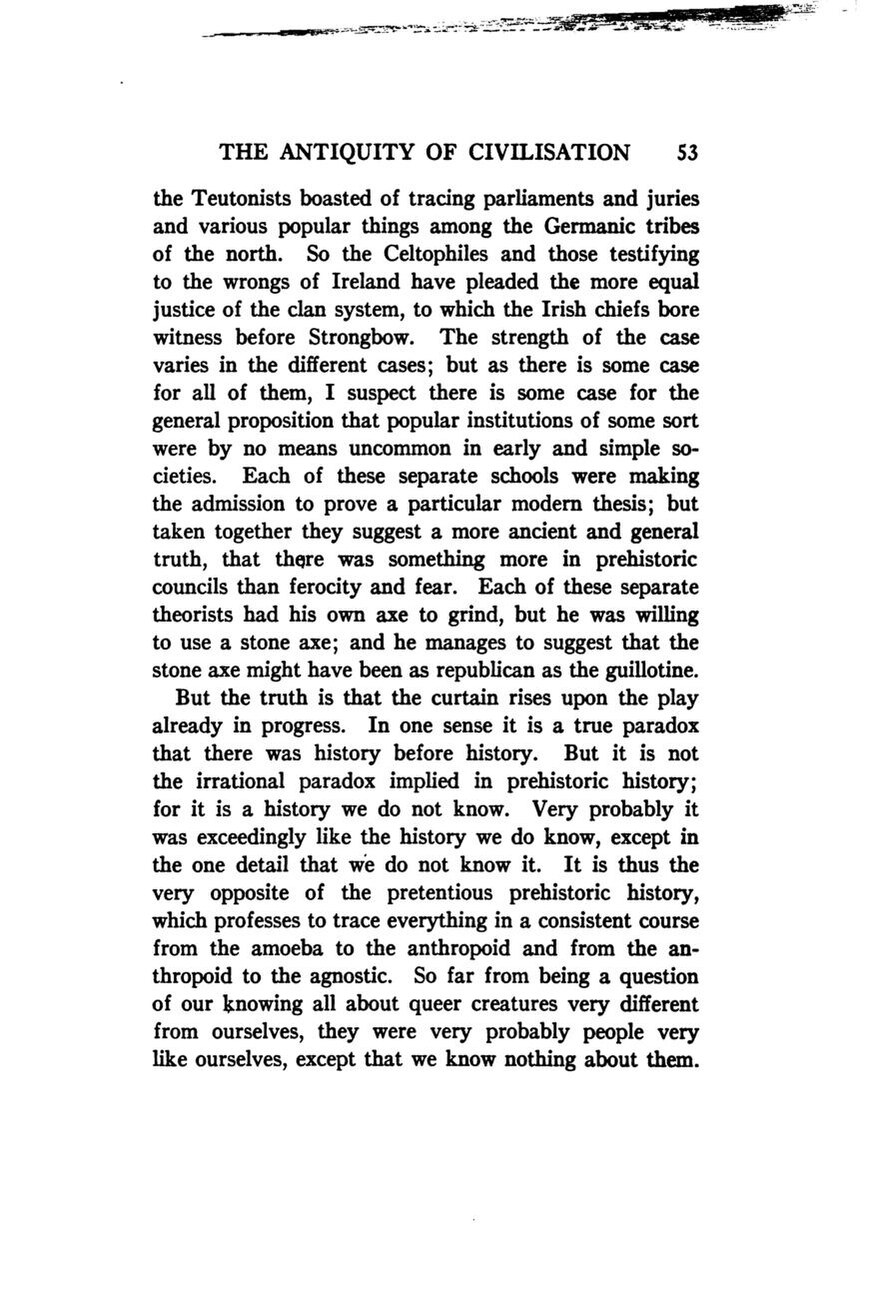the Teutonists boasted of tracing parliaments and juries and various popular things among the Germanic tribes of the north. So the Celtophiles and those testifying to the wrongs of Ireland have pleaded the more equal justice of the clan system, to which the Irish chiefs bore witness before Strongbow. The strength of the case varies in the different cases; but as there is some case for all of them, I suspect there is some case for the general proposition that popular institutions of some sort were by no means uncommon in early and simple societies. Each of these separate schools were making the admission to prove a particular modern thesis; but taken together they suggest a more ancient and general truth, that there was something more in prehistoric councils than ferocity and fear. Each of these separate theorists had his own axe to grind, but he was willing to use a stone axe; and he manages to suggest that the stone axe might have been as republican as the guillotine.
But the truth is that the curtain rises upon the play already in progress. In one sense it is a true paradox that there was history before history. But it is not the irrational paradox implied in prehistoric history; for it is a history we do not know. Very probably it was exceedingly like the history we do know, except in the one detail that we do not know it. It is thus the very opposite of the pretentious prehistoric history, which professes to trace everything in a consistent course from the amoeba to the anthropoid and from the anthropoid to the agnostic. So far from being a question of our knowing all about queer creatures very different from ourselves, they were very probably people very like ourselves, except that we know nothing about them.
